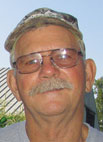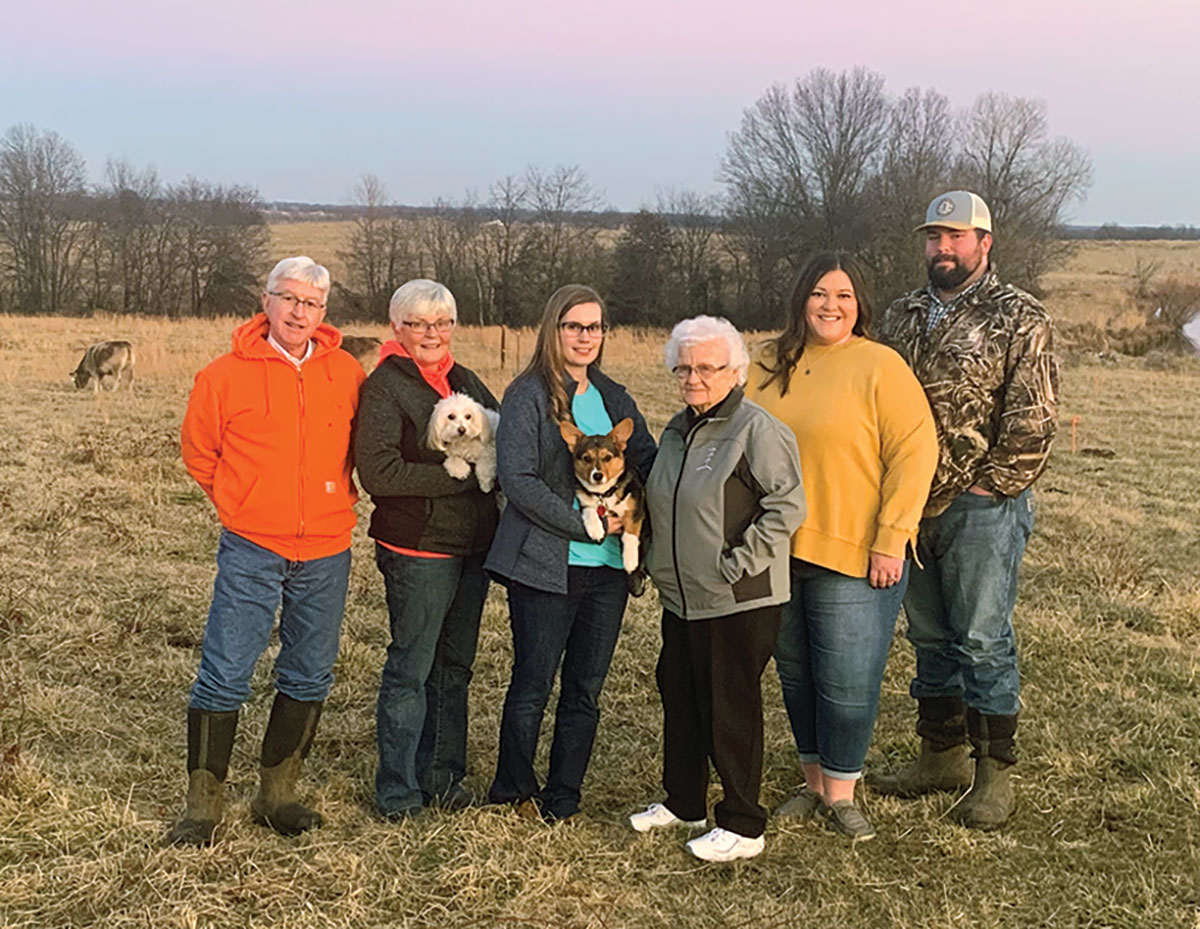
Except for four years attending college, 49-year-old Carl Button has lived his entire life on the family farm near Urbana, Mo., in Hickory County. His Grandfather Meier purchased the farm in 1950. In the mid 1960’s, Carl’s father bought the farm and added more land to it, eventually expanding it to 500 acres. Today the farm is divided between Carl and his brother and sister. He owns 160 acres of the family farm plus another 80 acres in Dallas County. Married 25 years, Carl and wife, Gayla, have three grown children.
Brangus is the breed of choice on the Button farm. “My dad started with Brangus in about 1970,” Carl said. His father passed away last October, but was active on the farm until the last two years of his life.
“For the last 40 years we have primarily built our herd on Brangus-based cattle,” Carl said, but added, “In the last four years we have also used Hereford bulls to cross with our Brangus cows to get a black baldie calf and black baldie heifers.”
Bulls are used on the Button farm instead of AI, but Carl is contemplating the use of AI in the future for heifers. For now, using bulls is just more convenient. “There’s less labor involved,” he explained.
Carl has 90 head of cattle and is planning to add 20 or 30 more this year. He likes Brangus because “they’re hardy and they’re easy calvers. Pulling a calf is very unusual for us.” He also likes the good mothering ability of the Brangus.
When buying a cow, Carl likes to purchase one weighing between 1,000 to 1,100 pounds. He also looks for a cow with “a moderate frame, good udder and if at all possible, a good disposition.”
Everybody starts somewhere, and Carl has advice for first-time buyers. “Get a good, moderate-framed cow with good conformation. Buy one with a good disposition; something you can handle.” Also important are good feet and legs, and a good udder.
His recommendation of a breed for a first-time buyer is one of three. “Brangus, or Angus,” Carl said, adding, “I like Hereford, too.”
Many of today’s farmers also have another vocation. Carl Button is an Agriculture Education Instructor at Skyline High School of Urbana.
Teaching for 22 years, he feels he incorporates his practical farming experience in the classroom. “I feel very fortunate to have a varied background in agriculture, from growing up and from what I’m doing now,” he said. “Especially in the area of agricultural mechanics. That’s what I basically teach.”
Over the years he has observed changes. “Since I started teaching in 1982 our students have totally changed. It’s not just our program, it’s statewide in Ag programs. In ‘82 almost every student I had, which was only 50 or 60 students then, had some kind of livestock project.” Now, between the two ag teachers at Skyline, he said, “We’ve got 150 kids, and we probably only have 30, maybe 40, kids that have livestock.”
While Carl still has a few students interested in traditional farming, he said, “There’s over 300 jobs in agriculture and there’s so many other things to do other than farming and ranching.”
Carl believes the biggest challenge facing today’s young farmers is “the acquisition of land. Getting into production agriculture is so expensive. There is also the high input cost to raise something, whether it is cattle or crops. It’s a very expensive business to be in.”
While farming has its challenges, it also has rewards. “You can’t beat the life,” Carl said. “You can’t beat raising a family on a ranch or farm. You can’t beat the experience of working with nature, and with crops and animals. It’s very rewarding.”
When it comes to advice, Carl said, “A lot of people want to give you advice. I give advice all the time.” But he believes the best advice he ever received came from his father and his grandfather, and they got it from the Bible. “Do unto others as you would have them do unto you.” Carl elaborated, “Basically, treat people the way you want to be treated.”







